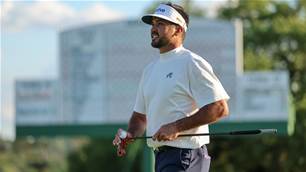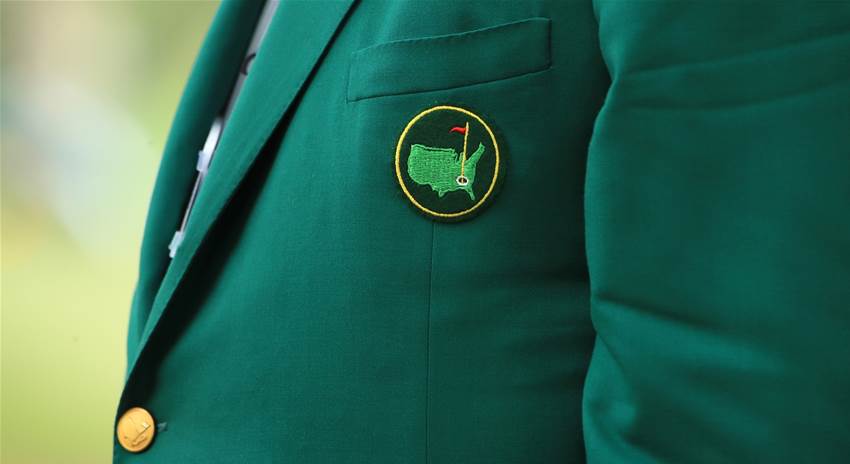Over the course of the 84 previous Masters Tournaments held on the hallowed grounds of Augusta National there has been many iconic moments. From heartbreaks to unlikely comebacks, here are 50 of the best in Masters history.
45. Craig Wood wire-to-wire, 1941
Craig Wood had encountered terrible luck in the Masters: he nearly won the first one in 1934, lost a play-off the following year and seemed fated to never win a Major. In 1941, he led Augusta all the way, ensuring a three-shot victory. Only four men since have led the Masters from wire to wire: Arnold Palmer (1960), Jack Nicklaus (1972), Raymond Floyd (1976) and Jordan Spieth (2015).
 44. Frank Stranahan finishes as runner-up, 1947
44. Frank Stranahan finishes as runner-up, 1947
The Masters still sets aside five places for amateurs, but one has never won the Masters though three have finished second. The first was the powerful Frank Stranahan (he was also a noted weightlifter), who shot a final-round 68 in 1947 – the best of the day – to tie Byron Nelson for second.
RIGHT: Caddie Carl Jackson comforts Ben Crenshaw after his emotional win in 1995 following the death of mentor Harvey Penick. PHOTO: ROBERT SULLIVAN/AFP via Getty Images.
43. Jack Nicklaus wins his first Masters, 1963
Jack Nicklaus' first victory was a close-run thing. With the weather making scoring difficult, only two men ended up under par – Nicklaus at two under and ‘Champagne’ Tony Lema at one under. At 23, Nicklaus became the youngest winner. This was also the final Masters for the inaugural winner, Horton Smith. He died of Hodgkin's Disease later in the year.
42. Phil Mickelson at last, 2004
After 22 wins on the American Tour, and years of carrying the dreaded tag of "best golfer never to have won a Major", the big left-hander Phil Mickelson finally won one – at his 47th attempt. Thanks to birdies at five of the last seven holes, including the last, he edged out Ernie Els by a shot.
41. Kirk Triplett follows Harrington with hole in one, 2004
In 2004, Kirk Triplett stepped up to drive at the 177-yard 16th. A few minutes earlier, Padraig Harrington, playing in the previous group, sank a hole-in-one at the same hole. Triplett followed Harrington in selecting a six-iron and the crowd watched in disbelief as they saw a second ace in a matter of minutes. Triplett summed up how he felt when he fell to the ground in shock on the tee: "I didn't know how to react," he said, afterwards. "As I lay on the hallowed ground, I couldn't believe it."
40. Ben Crenshaw's tears and glory, 1995
Ben Crenshaw's 1995 win came days after the death of Harvey Penick, his mentor, who had taught him a smooth, effortless putting stroke. The American was a pallbearer at Penick's funeral on the Wednesday and teed off the next day. After his final putt won the championship, he collapsed in tears into the arms of his caddie, Carl Jackson.
39. Arnold Palmer and the double-ball mystery, 1958
Arnold Palmer's first Masters victory in 1958 was clouded by a double-ball controversy in the final round. On a wet day, his tee-shot at the 12th plugged into its own pitch-mark on the back fringe of the green. According to Palmer, "A local rule providing relief from an embedded ball was in effect. I should have been able to lift, clean and drop my ball without penalty to a spot as close as possible to the original position." But a rules official told Palmer he had to play the ball as it lay. Palmer told him: "I'm going to play two balls and appeal to the tournament committee." He took a five with his original ball, but a three with the second one. The appeal was eventually upheld, which saved Palmer two shots ... and he won by one.
 38. Horton Smith wins first tournament, 1934
38. Horton Smith wins first tournament, 1934
The Masters was first played in 1934. For its first five years it was called the Augusta National Invitational tournament as Bobby Jones, one of the co-founders, thought the name The Masters was just too presumptuous. The first winner was 25-year-old Horton Smith, who sealed victory with a 20-foot putt for a birdie at the 17th. Smith won again in 1936 when he was seemingly unaware that his caddie was storing a live rabbit down the golf bag.
RIGHT: Horton Smith was the winner of the first tournament held at Augusta National. PHOTO: General Photographic Agency/Getty Images
37. Dan Pohl's purple patch, 1982
Dan Pohl was not quite unknown when he teed off for the first time at Augusta in 1982, but it was nonetheless a surprise when he painted one of the more purple patches in Masters history during the third round, scoring eagle, eagle, birdie, birdie from the 13th to the 16th and thus picking up six shots. On the final day he forced his way into a play-off with Craig Stadler, but there was no fairy-tale ending for Pohl who missed a six-footer on the first extra hole to hand the title to his opponent.
Related Articles

Scottie Scheffler joins Tiger Woods in rarefied air

Landmark ton awaits title-hungry Scott













